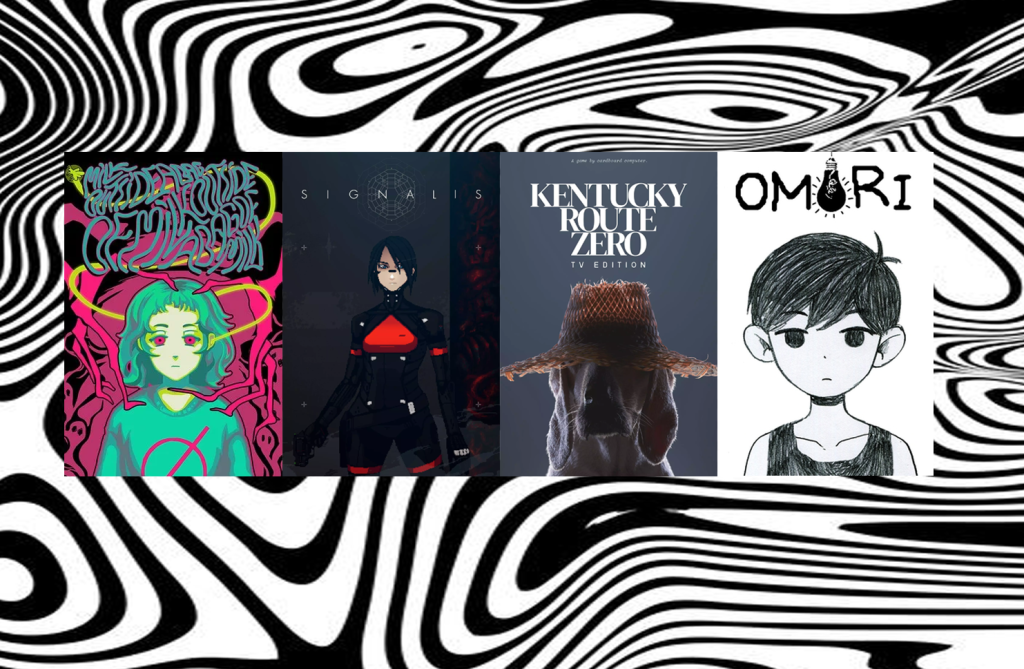On July of 1981, a man by the name Kawamata Gunji went on a stabbing spree on the streets of Koto, Tokyo, claiming the lives of two women and two children. He then kidnapped a housewife and barricated himself inside a restaurant for seven hours. The day before this incident, Gunji had applied for a job as a sushi chef in four different restaurants, and was denied by all of them due to poor behavior at his interviews. He acted erratically and aggressively, and his frustrations culminated in the attack that followed the next day.
Authorities were able to break through the barricade and arrest him, and what Gunji claimed at his trial would create an entire subculture in otaku media.
“For years, I’ve been harassed by radio waves.”
Kawamata Gunji

Gunji testified that voices made him do it. An invisible mastermind that communicated with him through electromagnetic waves forced him to kill, and this response baffled everyone present at the trial. Gunji managed to escape the death penalty through an insanity defense after his lawyers claimed that he was in a state of severe paranoia and hallucinations, but a very niche part of the population latched onto his denpa statement, fascinated with exploring such a theme.
The word denpa (電波) means “radio waves”, but it evolved into something else entirely after the murders. It was the 1980s in Japan, and the country was experiencing an economic boom, with telecommunications and computers becoming increasingly vital to everyday life. The idea that electromagnetic radiation from radio towers and satellites could affect a person’s perception of reality or even compel someone to do something against their will was completely new territory, and with existential horror, comes art.
And this art mostly sprouted from those who already felt like outcasts. “Denpa” received a terrible conotation at the time, used to refer to people who were not fit to partake in society due to their refusal to live in reality, escaping to fantasy worlds instead. It was very much associated with otaku, as they were seen as delusional for choosing to obsess over games and cartoons instead of making themselves useful to society at large, and then as loners for never leaving their homes to enjoy a world that actively hated them. With this context in mind, it’s no wonder the genre spread to every corner of this culture, birthing terms such as denpa-kei, doku denpa and denpa moe.
Today, we explore the wonderful world of denpa.
Anime
I’ve had this feeling often after finishing shows that I could only describe as “weird”. Shows with a very specific theme or aesthetic that I couldn’t quite put a name to, featuring characters disconnected from reality and considered deviants due to being absorbed in delusions, but that if I dug deep enough, I would realize that at their core, were shows about the social isolation we feel with the ever-growing modernization of the world around us. Sometimes, with a dash of otaku culture glorification.

None of these shows are denpa.
But only because nobody ever really markets their shows as denpa. The genre has so many specific ramifications that it’s impossible to pinpoint what exactly makes an anime or manga 100% denpa, but if a few of the themes above are prominent in the title, then it’s fair game. If you’re left with a sour taste in your mouth after describing something as just “weird”, then look no further. That weirdness might just be denpa.
It’s interesting to me how we try to categorize things that we come up with ourselves. Evangelion is as denpa as Higurashi, but you’ll never hear someone in their right mind recommending them as their favorite denpa anime. These are shows that have denpa aspects to it, but their main genres are still considered mecha and pyschological horror. What really makes something denpa is the extent to which we look at the vibes and go “yeah, she goes a little nuts, I can see it.”
Games
Now, this is where things get interesting.
Denpa in visual novels is much more prominent. The medium is just better suited to experiment with the off-putting vibes of the genre, using the interface in creative ways to really put us inside the mind of someone losing their grip on reality — through text repetition, music distortion and grotesque artwork, visual novels can affect us in ways that anime can’t quite reach yet. The fact that we’re the ones pressing the key that will lead us to the next scene, and then the next, knowing that things can only get worse from here, is quite chilling.

In VN circles, it’s quite common to hear about The Denpa Big 3:
- “Shizuku” (1996)
- “Sayonara wo Oshiete ~comment Te Dire Adieu~” (2001)
- “Tsui no Sora” (1999), which would later be reworked into the only English release title of all of these games, “Wonderful Everyday Down the Rabbit-Hole” (AKA SubaHibi, it’s on Steam!)
Two other famous denpa titles that are also often discussed are:
- “Fushigi Densha” (2003)
- “Jisatsu no Tame no 101 no Houhou” (2001)
And while the majority of these titles aren’t particularly… good, they are worth checking out for their legacy alone (Amelie Doree has video essays in almost all of them), but “Shizuku” deserves a bit of a highlight because it’s considered the founder of the denpa genre.
“Shizuku” has it all: the presence of “poisonous radio waves” (doku denpa) that make students go mad; Tsukishima Ruriko, the character who created the archetype of denpa onna (quirky girl who believes she has supernatural abilities and is obsessed with the occult); and it was even the first game to ever market itself as a “visual novel”.
Also, Ruriko’s BGM just slaps.
(Gotta be honest with you fam, I have a slight suspicion that this game’s fame is 80% Ruriko and 20% denpa.)
Be aware that all of these games are experimental eroge (erotic visual novels), which means that they are rated 18+ and are filled to the brim with every trigger warning imaginable. One of the core aspects of denpa in VNs is exploring characters so disconnected from reality that they’ll usually succumb to intrusive thoughts and wonder: what exactly would be the consequences if none of this is real? Unfortunately, it’s also because of this that we’ll most likely never get official releases of these cult classic games in the west, but it’s always interesting to know that these freaky little things can thrive in the eroge medium, as it tends to happen.
That’s not to say other games outside of Japan haven’t taken inspiration from denpa. Here are a few games that I personally believe can fall in the denpa category due to its themes and aesthetics (they’re all on Steam!):

(I’d go as far as to say Disco Elysium is communist denpa, but the world might not be ready for that yet.)
Music
Since this blog is mostly about music, you’ll be delighted to know that denpa extends to music as well. I’d say that as far as popularity goes, music is where denpa thrives the most. The genre, being so rooted in otaku culture that you can say it’s made by otaku for otaku, can also be called “Akiba-Pop”. Born and sold in doujin circles for the most part, denpa artists will come out of their caves every Comiket with their latest masterpieces for us to enjoy.
Denpa music borrows a lot of elements from chiptune and hardcore techno, sometimes with creepy lyrics and dissonant beats that are so hypnotizing that they can fall into the doku denpa category of feeling like you’ve been poisoned by radio waves, sometimes just happy moe music that makes us smile. It can take time to get used to the cutesy, fast-paced elements of denpa music, but what was considered extremely underground in the past now extends to anime openings and rather famous idol groups who took the genre and went ham with it.
One of my first contacts with denpa music was in Touhou doujin circles. Producers like IOSYS and COOL&CREATE never really forgot their denpa roots, and the type of music they did back then were completely catered to this specific niche of people.
And perhaps the most famous idol group to make the genre proud is Dempagumi.inc. Born as indie idols in the live house DearStage, the girls grew exponentially with their unapologetic Akiba-style songs and managed to reach the goal that every chika idol dreams of: they went to Budokan.
On a more personal and darker note, Shinsei Kamattechan (of Attack on Titan Season 2 ED fame) has made one of my favorite denpa MVs of all times. They consider themselves a rock band and never officially called their content denpa as far as I’m aware, but as we’ve seen, they don’t really need to. TW for suicide on this one, but it’s a breathtaking piece based on a real life streamer who unfortunately recorded herself taking her life.
And to end this section on a more cheerful note, I recommend Bandcamp artist emamouse and her incredible denpa selection. I’m particularly obsessed with her albums’ covers.

Denpa is a fascinating concept. Its roots are gruesome, but the fact that a parcel of society took something from it that made them want to create is one of the many reasons why I think art is so necessary.
It’s a genre that dwells in the deepest, darkest parts of ourselves, a niche that allows people to bask in thoughts that they will never act upon, but that are there all the same. It was shunned from the mainstream because it’s so deranged. Because admitting that these thoughts exist within ourselves brings shame to well-adjusted people. But denpa opens a space for it to exist. In fiction, we can be free. In our delusions, we can let go of the wheels for just a moment, knowing that it won’t hurt anybody.
So, what will it be?

Leave a comment